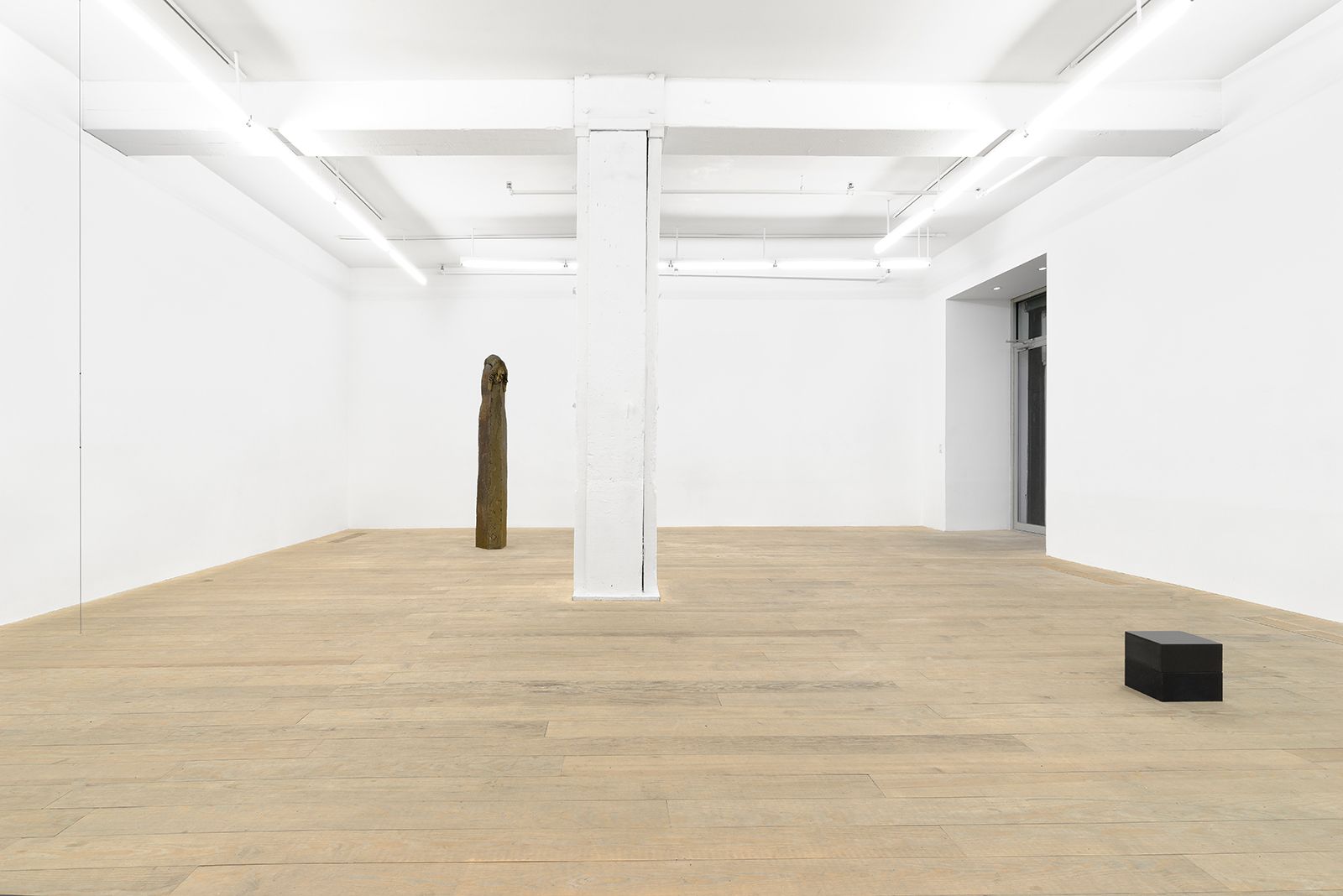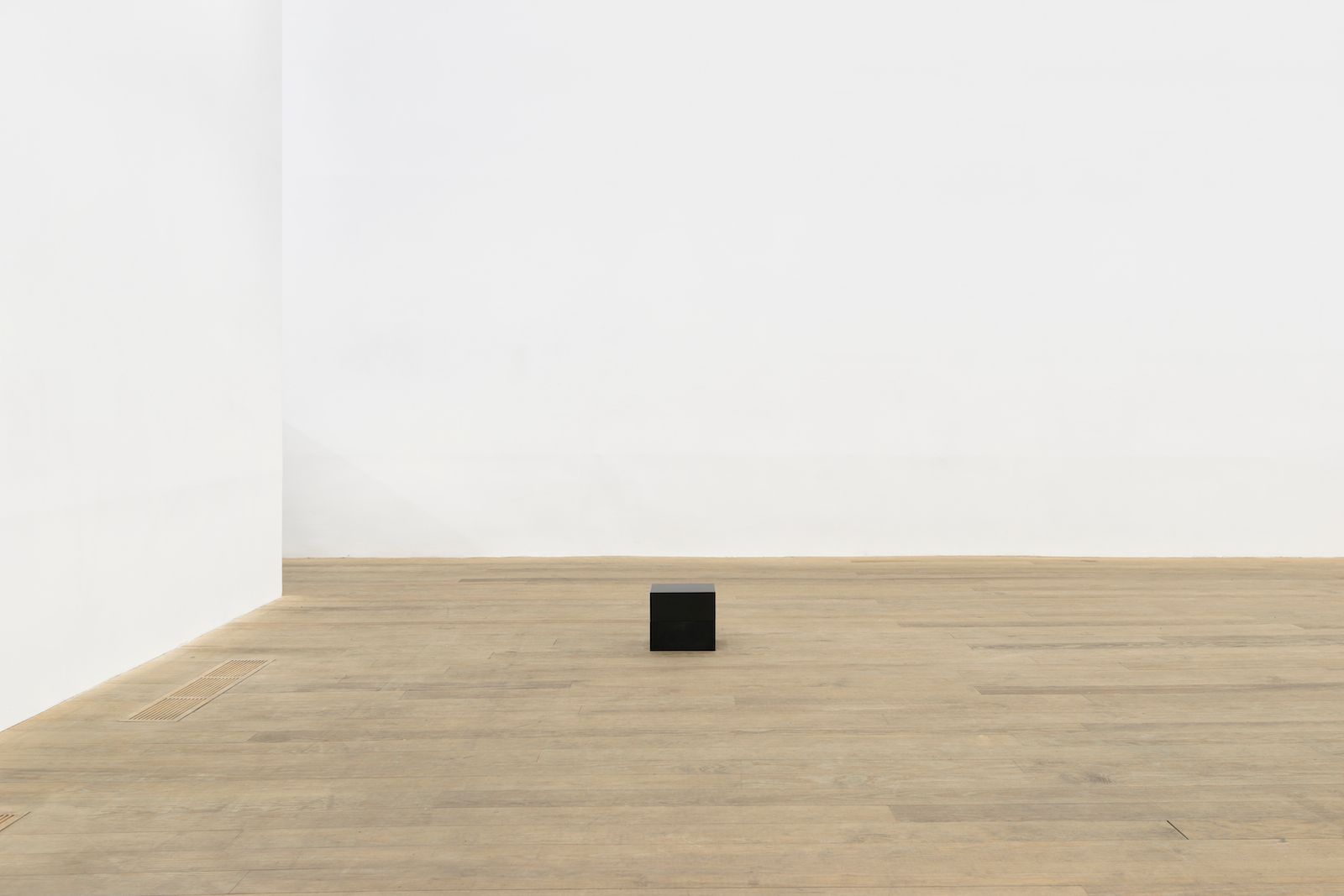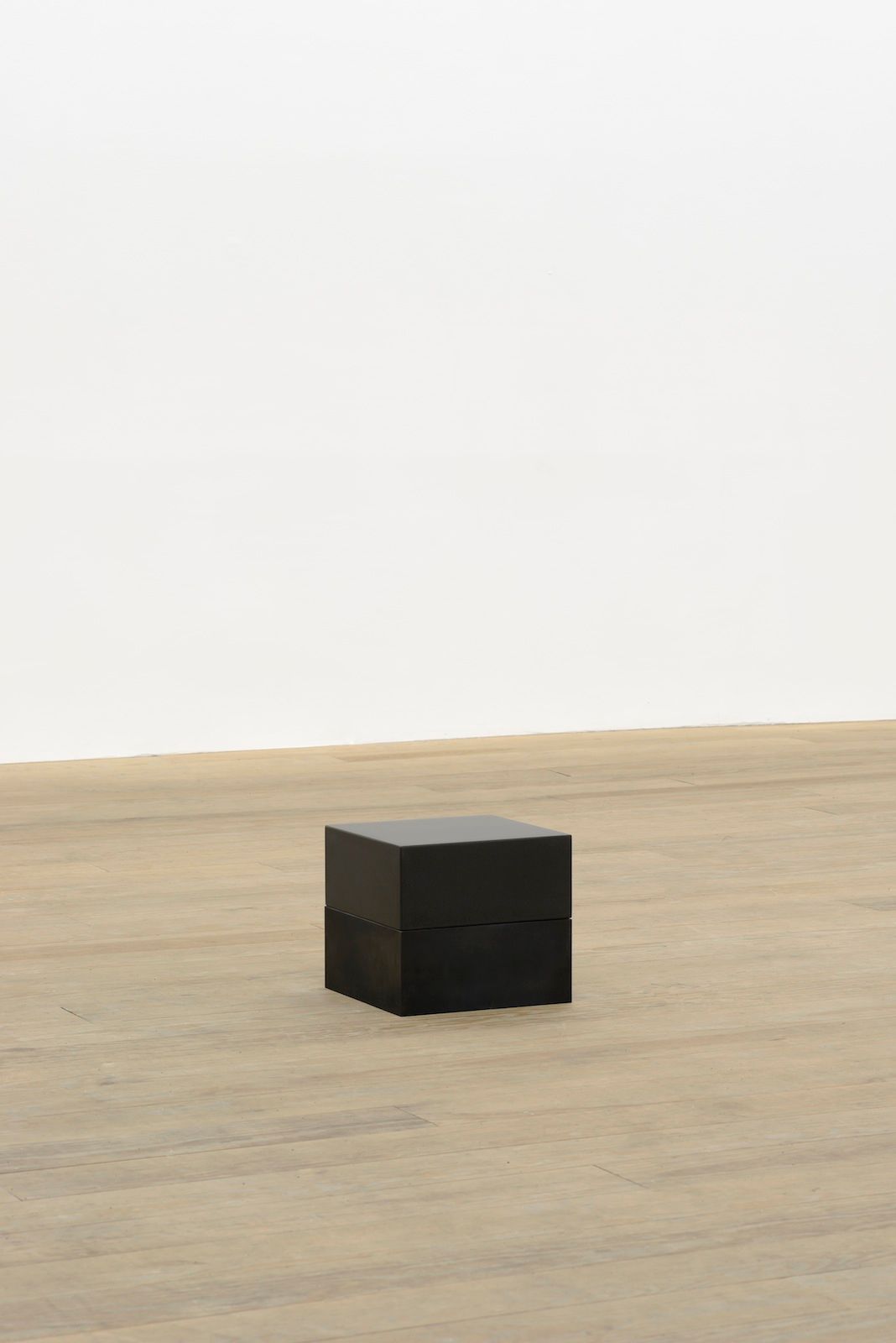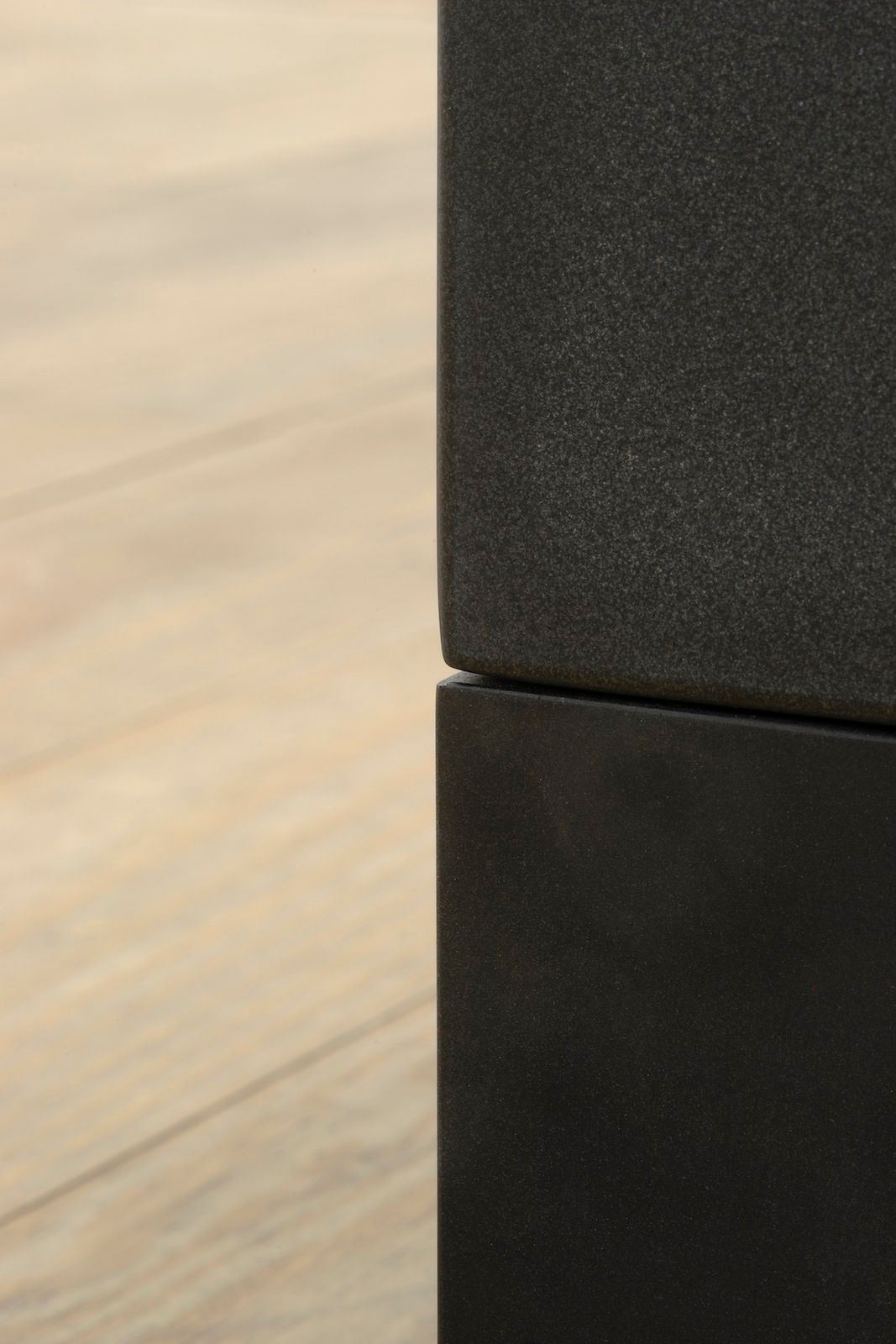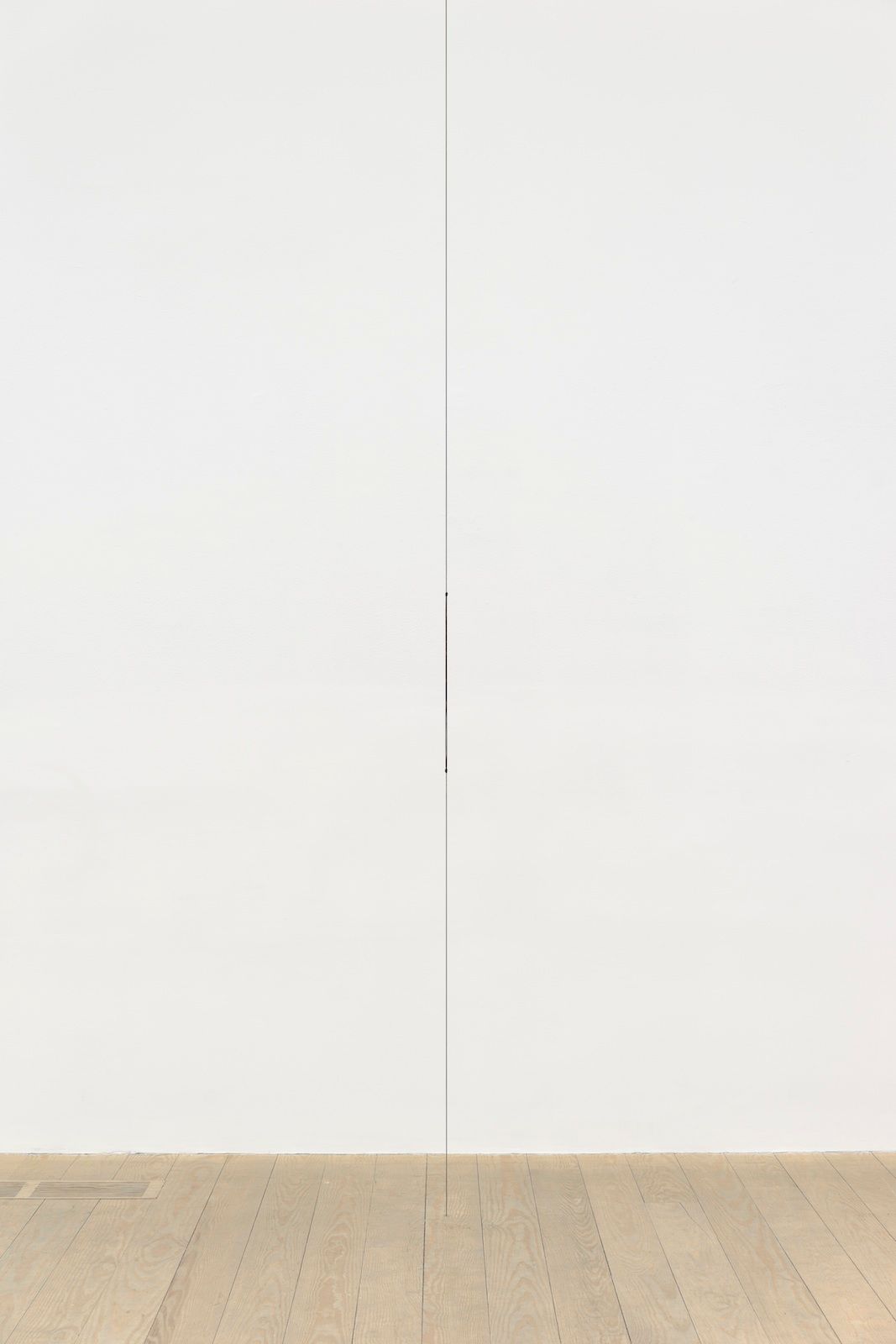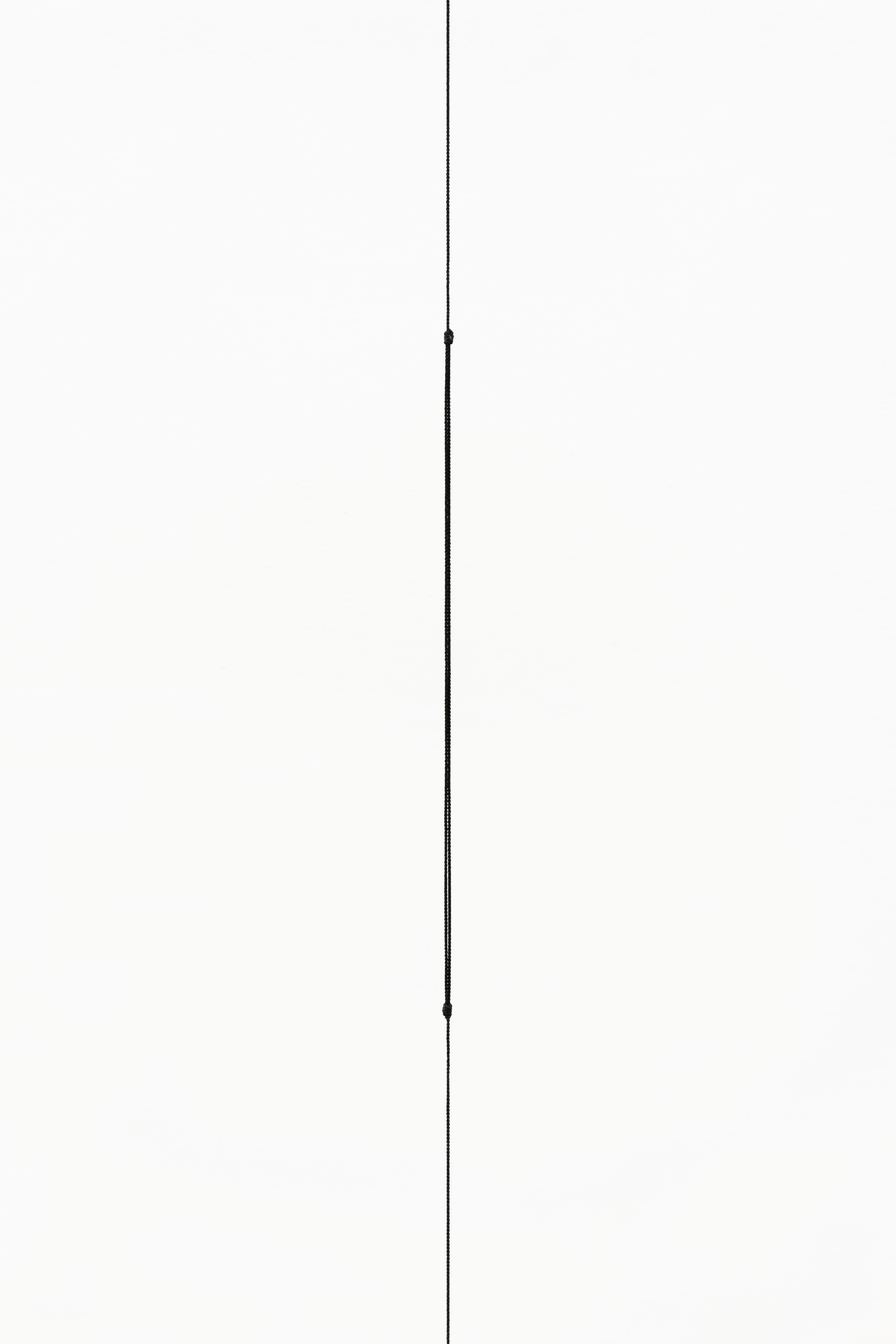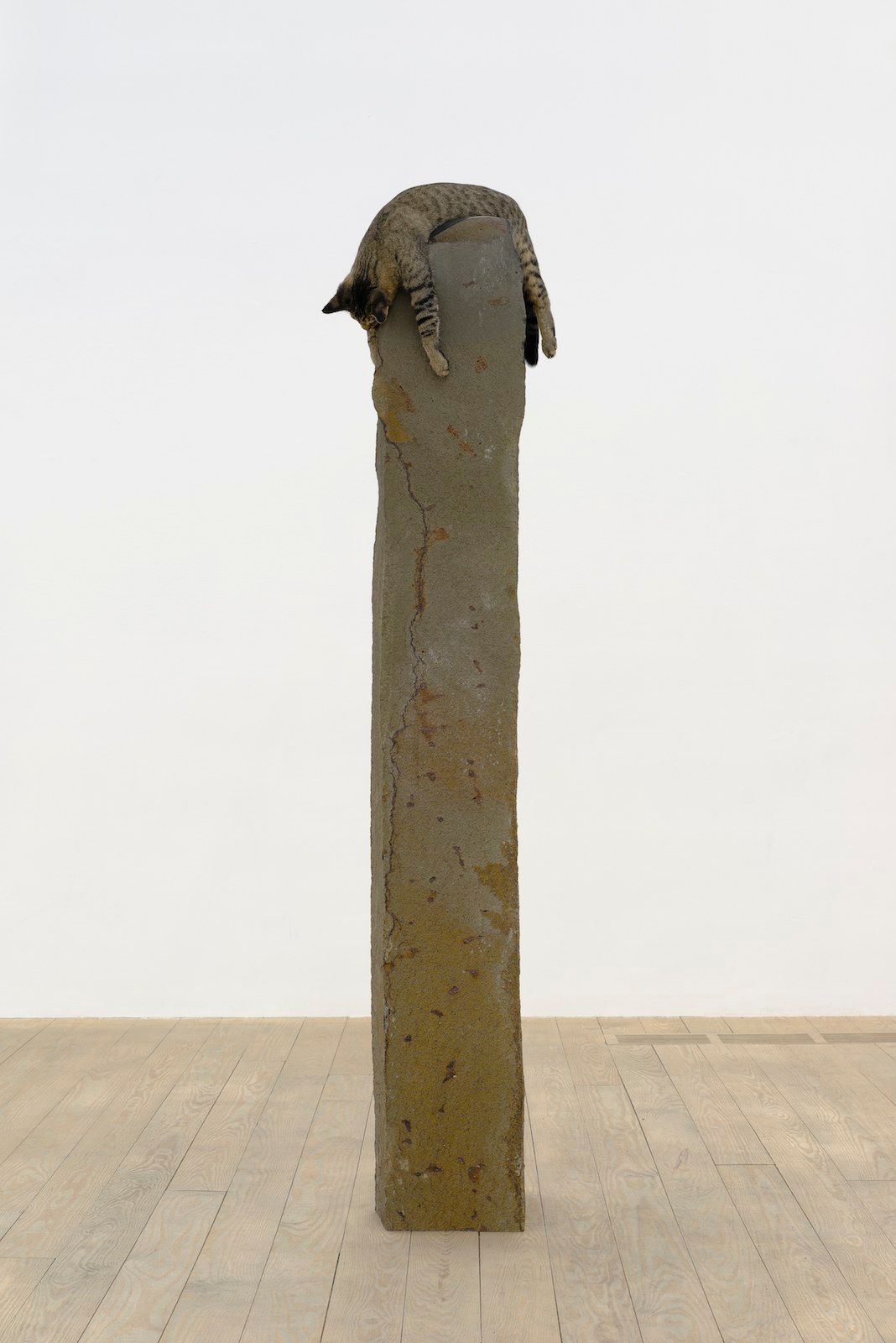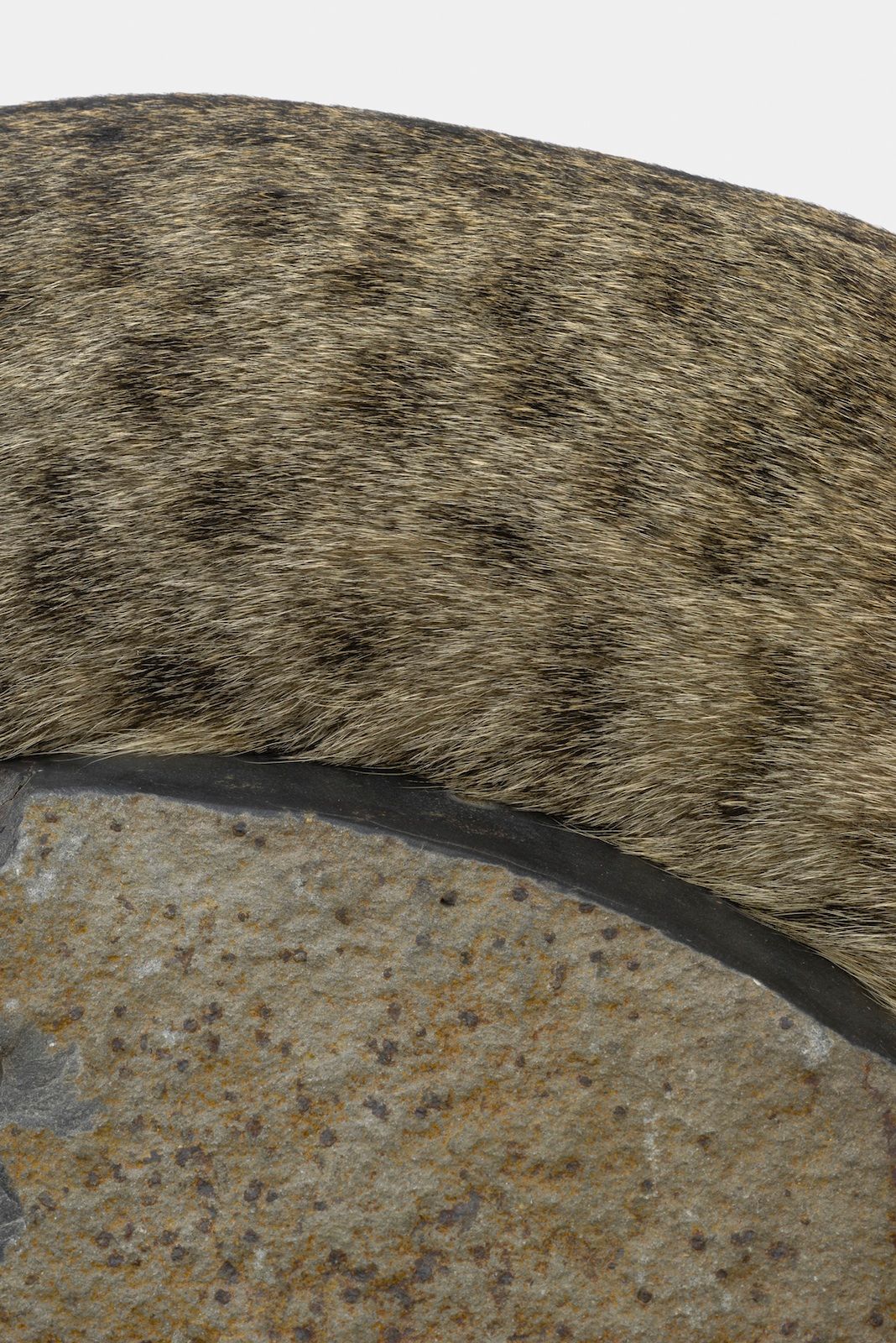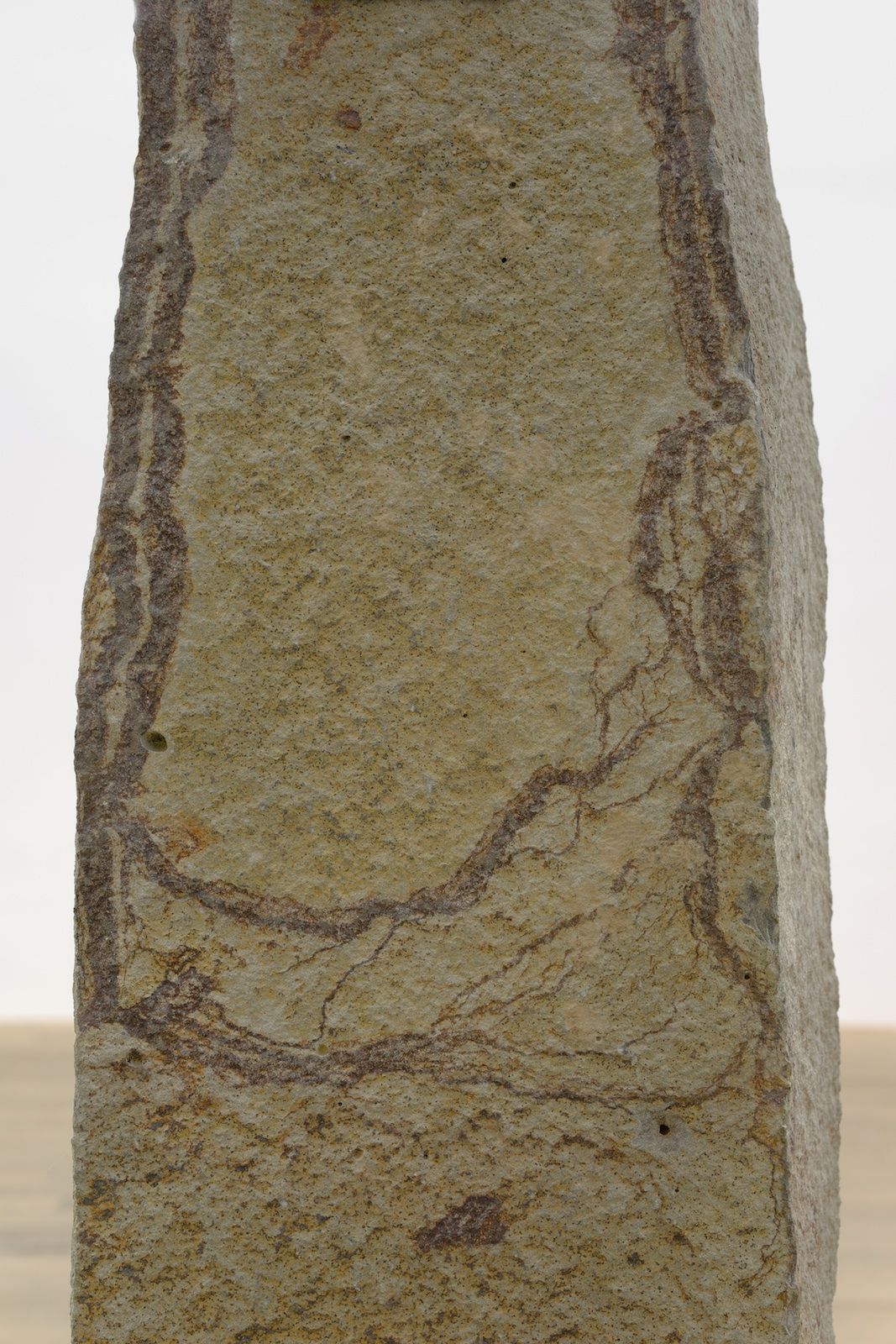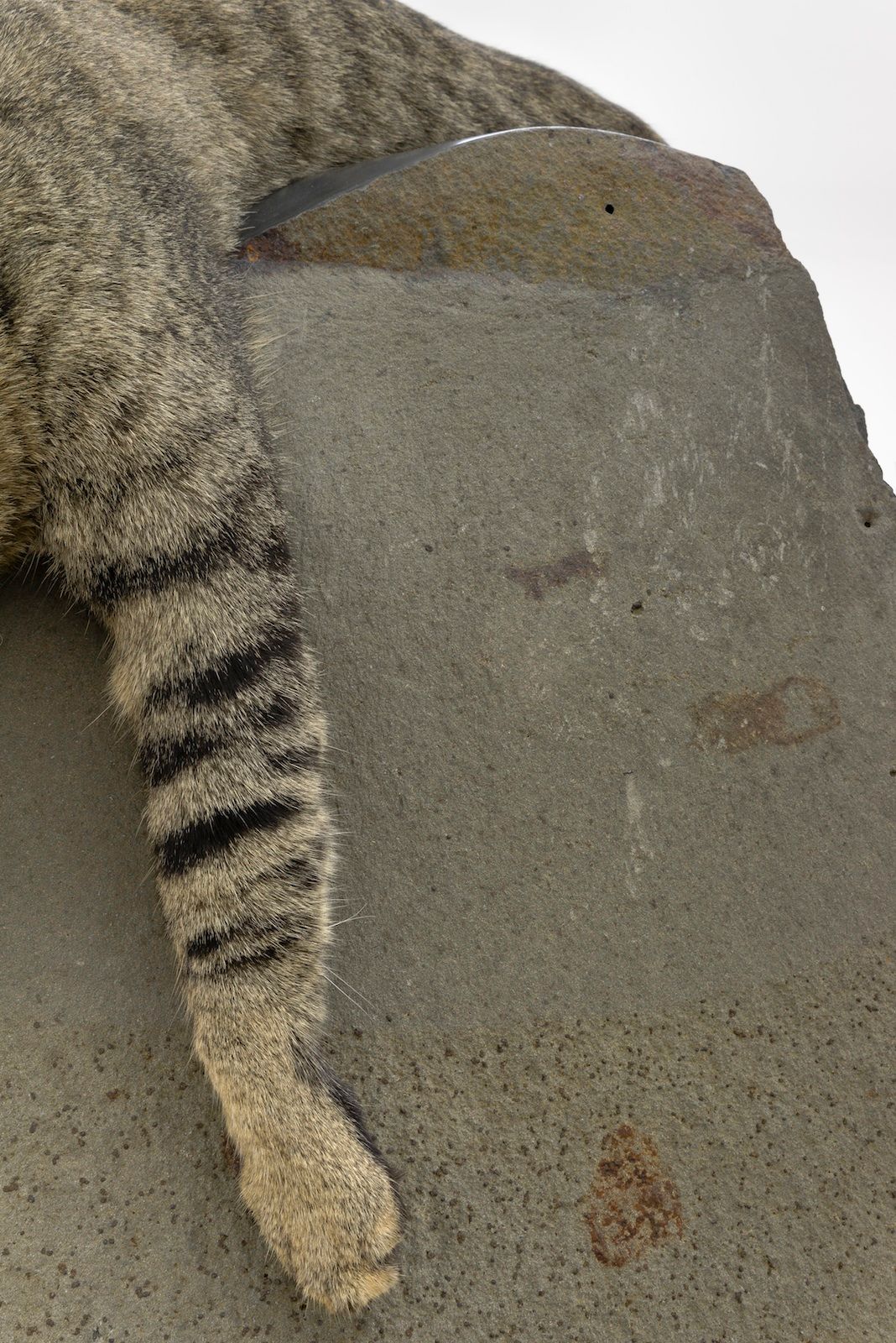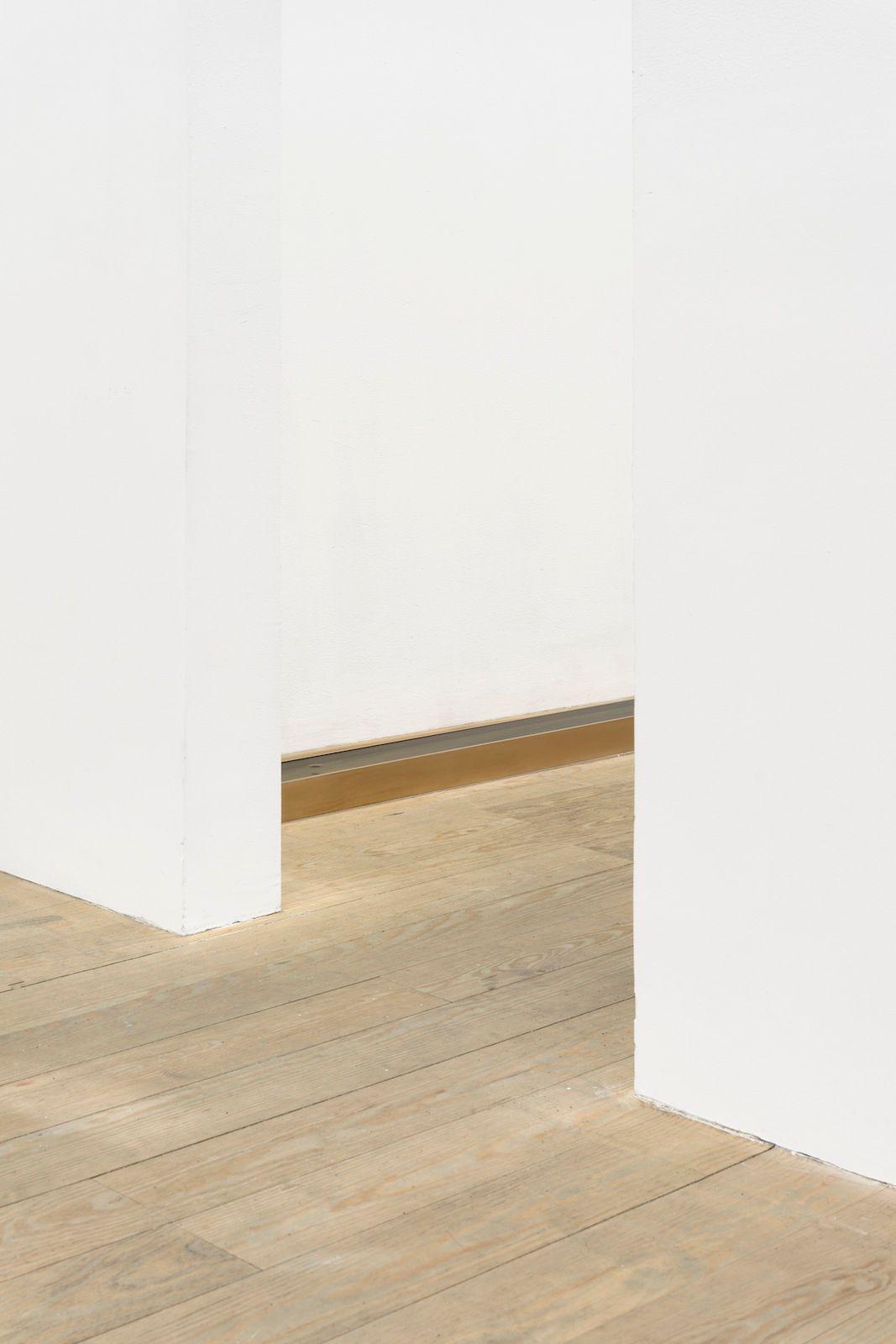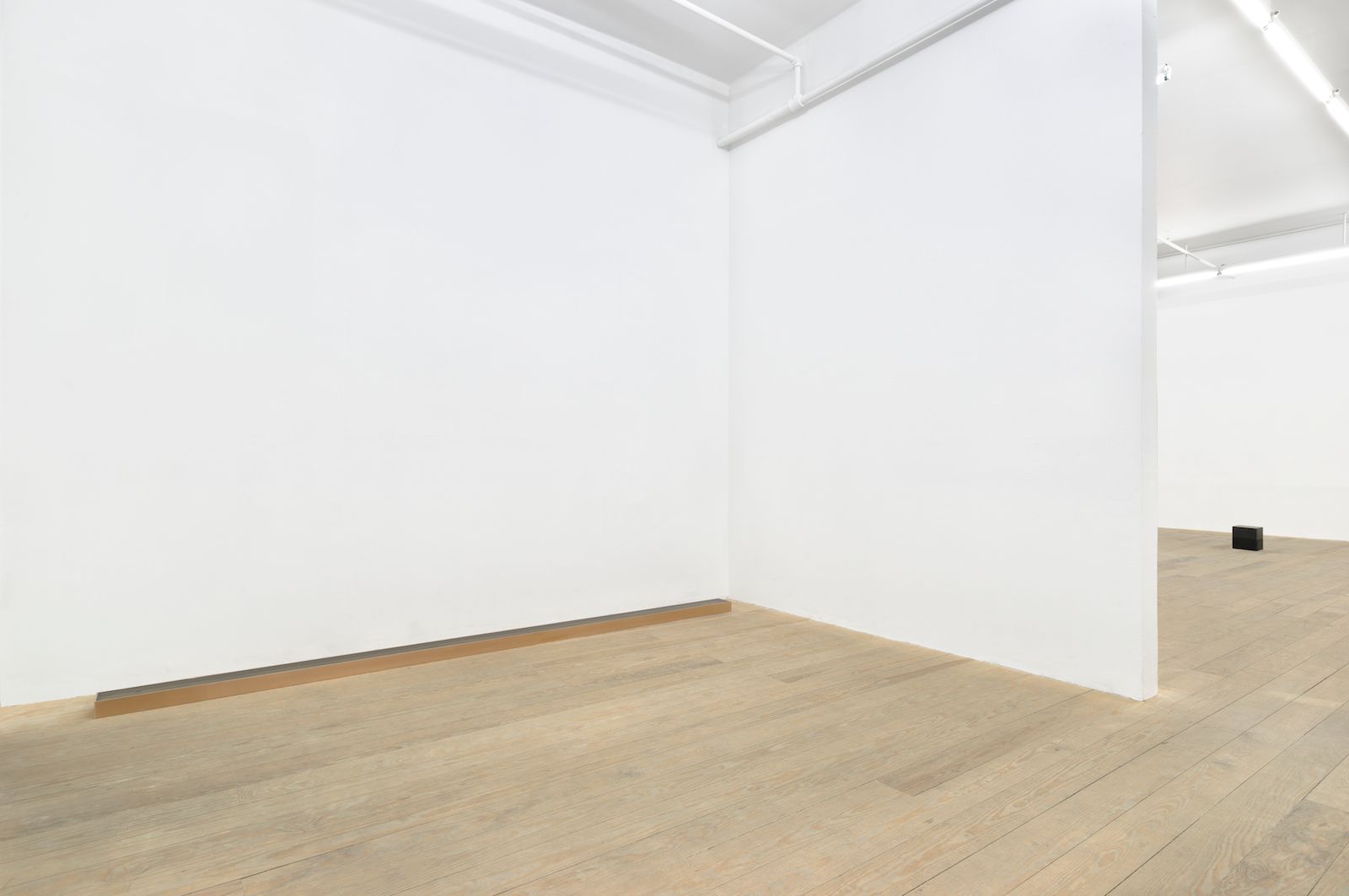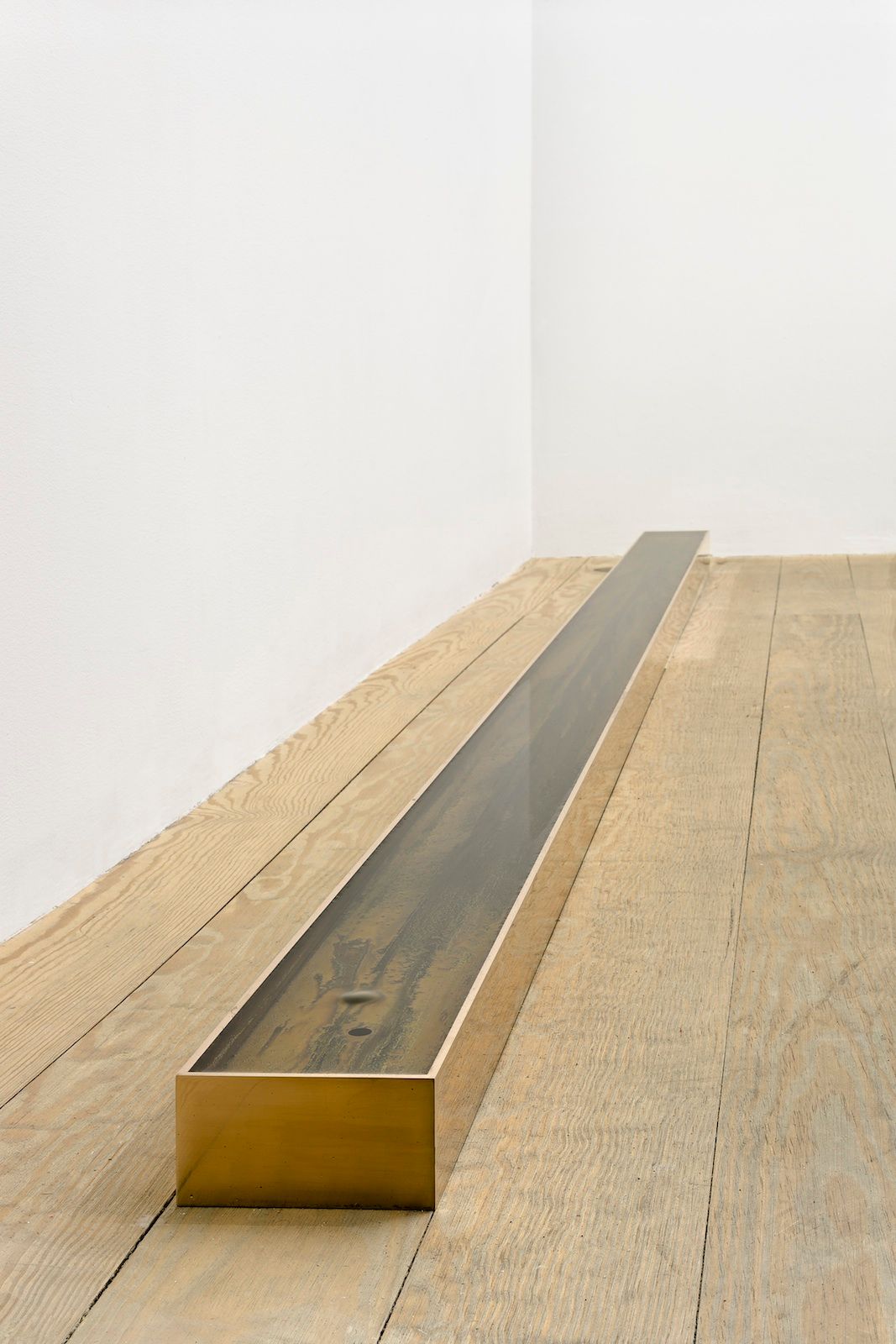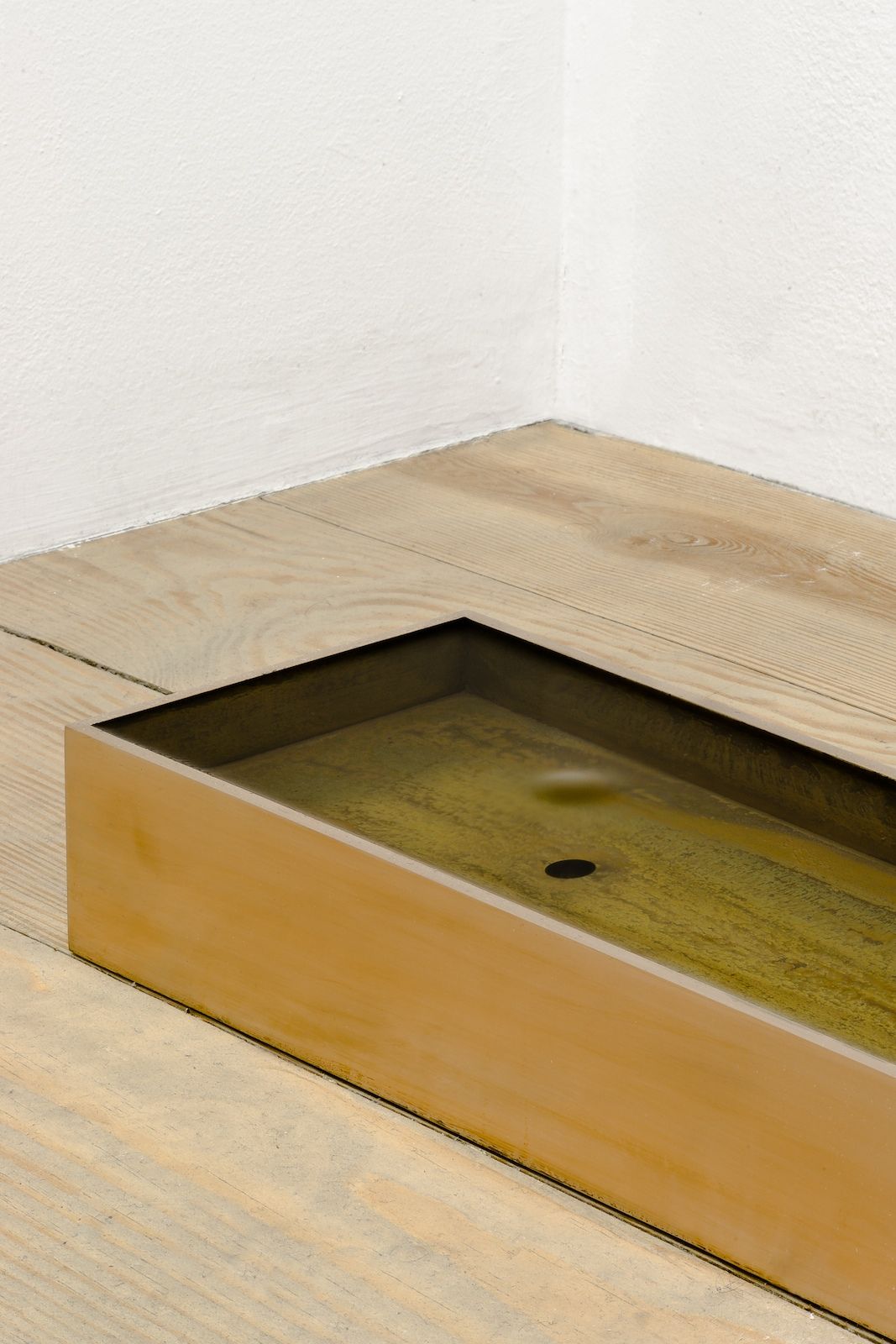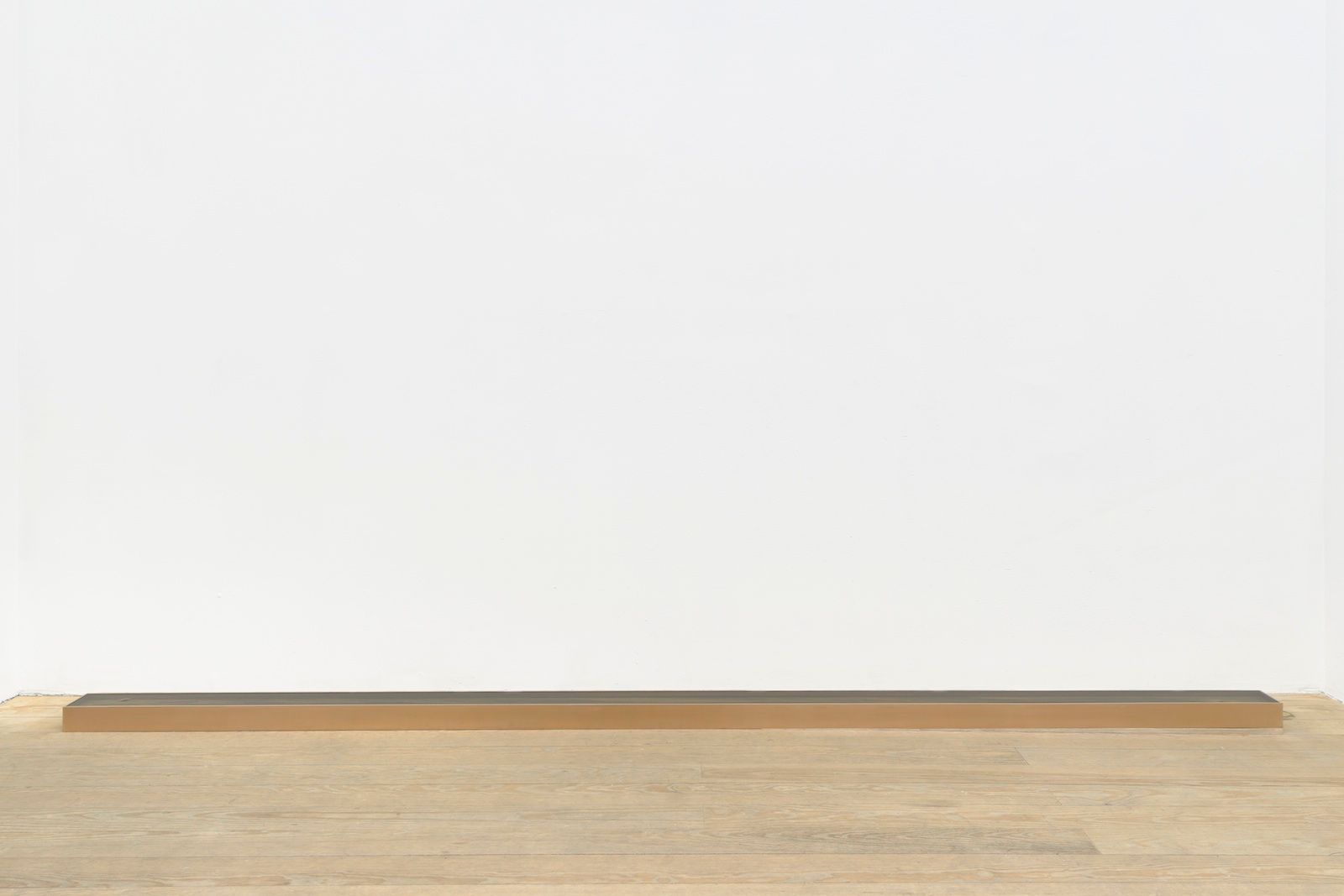Stephen Lichty’s first solo exhibition at Foxy Production comprises a new body of sculptures that give minimalist, iconic forms an expressive force. Lichty is interested in the transformation of objects and organisms through both actions upon them and their placement with other elements. These metamorphoses generate an allusive dynamic that often lies somewhere under the threshold of representation.
The artist places a cat that has undergone taxidermy upon a carved pillar of basalt. This juxtaposition is at first jarring, even startling; on reflection, cat and rock seem to follow each other’s contours in a kind of symbiotic physical relationship.
The animal’s very life-like presence makes it more than a memento mori: the work underlines how objects can generate not just retrospection, but how they also sustain their own energy in the moment. The work recalls ancient Egyptian statues whose role was to guard the deceased as they crossed into the after-life; they, like Lichty’s sculpture, are part of a system that transcends their individual identity, that is more iconographic than figurative.
Fountains consists of two parallel rectangular circulating pools of water. Viewers find themselves between identical long and narrow bronze trays, placing them physically within the dynamic of the work’s structure. The simple elegance of the work’s design belies the many varied references it invokes: from domestic water features to grand public memorials, and from Duchamp’s readymades to the architecture of Mies van der Rohe.
Untitled is a black cube divided into very similar but still distinct sections: carved basalt is placed upon a block of oxidized steel. The work may recall the sculpture of Carl André or John McCracken in its spare form, although the subtle disjunction of its components, of their color and texture, contrasting with their shared mineral ingredient (magnetite) provokes questions about unity, repetition, and difference.
Cord consists of a braid of dark Japanese silk held tautly between ceiling and floor. The work is the most minimal of the exhibition, comprising, it could be said, silk and tension. Yet it conjures a range of associations that circulate without holding claim to it: from the history of silk; to the physics of its pressured structure; to its art historical reference, the yarn sculptures of Fred Sandback.
CREDITS:
Photography: Mark Woods.
